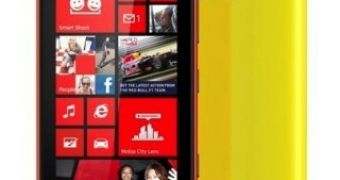Nokia has managed to regain its foothold on the smartphone market in the fourth quarter of the last year, following the launch of a new series of Lumia devices, powered by Microsoft’s Windows Phone 8 operating system.
Three handsets have been unveiled in the new series so far, namely the Lumia 920, Lumia 820 and Lumia 620, all capable of delivering similar functionality to their users.
Especially when it comes to business customers, these three handsets can prove great options, Nokia claims, touting the security features that all of them were packed with.
In fact, Nokia has already announced that it had partnered with Avanade for pushing its new Lumia devices to the enterprise segment, and the aforementioned business capabilities packed inside these phones should help it achieve its goal.
As mentioned in a recent post on Nokia Conversations, some of the main business features that these devices were packed with include secure boot, hardware accelerated encryption, support for Exchange, and more.
In the enterprise segment, security is one of the main factors that determines the adoption of a platform or another, and Nokia says that its new Lumia handsets are up for the task.
“If organizations are going to use smartphones for business use and accessing company sensitive data, security is something that needs to be considered. Data protection is the real strength of Windows Phone 8,” Tarja Kantola, from Smart Devices Product Marketing, says.
“With Nokia Lumia, companies can enable hardware-based encryption on their devices. Hardware assistance means that running the encryption activities does not impact the performance of the other applications.”
Additionally, the Internet Explorer 10 browser loaded on Nokia’s Lumia phones can offer safe browsing as well, keeping away potential malware that could compromise applications or files.
“The Internet Explorer 10 browser and all other apps run in their own isolated chambers. This chamber mode means that the apps, like the browser, don’t have access to other applications or to camera, location or microphone, for example, without the user’s permission,” Tarja Kantola continues.
Additionally, there’s also the Windows Phone Store, the official portal for installing applications on new Lumia devices, which comes with its own set of security measures to ensure that no malicious app lands on handsets.
All apps are verified through a careful submission and approval process to ensure that no harmful app gets listed in the Windows Phone Store.
And last but not least, there are also the device management features that Windows Phone 8-powered Lumia devices were launched with, and which ensure that companies can easily “remotely enforce the use of passwords, manage the security and even the private company apps for an entire fleet of devices.”
“Companies can also choose from compatible solutions such as AirWatch, MobileIron, PointSharp, Symantec, Zenprise and Windows Intune for remote management,” Tarja Kantola concludes.

 14 DAY TRIAL //
14 DAY TRIAL //